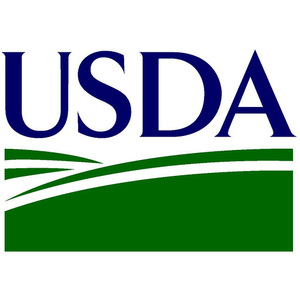USDA to invest $1B in Partnerships for Climate-Smart Commodities

February 16, 2022
BY Erin Voegele
The USDA announced on Feb. 7 it will invest $1 billion in partnerships to support America’s climate-smart farmers, ranchers and forest owners through its new Partnerships for Climate-Smart Commodities opportunity.
The newly launched program will finance pilot projects that create market opportunities for U.S. agricultural and forestry products that use climate-smart practices and include innovative, cost-effective ways to measure and verify greenhouse gas benefits. USDA is now accepting project applications for fiscal year 2022.
“America’s farmers, ranchers, and forest owners are leading the way in implementing climate-smart solutions across their operations,” said Agriculture Secretary Tom Vilsack. “Through Partnerships for Climate-Smart Commodities, USDA will provide targeted funding to meet national and global demand and expand market opportunities for climate-smart commodities to increase the competitive advantage of American producers. We want a broad array of agriculture and forestry to see themselves in this effort, including small and historically underserved producers as well as early adopters.”
Advertisement
For the purposes of this funding opportunity, a climate-smart commodity is defined as an agricultural commodity that is produced using agricultural (farming, ranching or forestry) practices that reduce greenhouse gas (GHG) emissions or sequester carbon.
Funding for the program will be provided through the USDA’s Commodity Credit Corp. to support pilot projects that provides incentives to producers and landowners to implement climate-smart production practices, activities and systems on working lands; measure/quantify, monitor and verify the carbon and GHG benefits associated with those practices; and develop markets and promote the resulting climate-smart commodities.
According to a notice of funding opportunity (NFO) published by USDA, projects developed under the program must be tied to the development of markets and promotion of climate-smart commodities. “Markets for climate-smart commodities may include companies or processors sourcing climate-smart commodities to meet internal targets or other supply chain goals, biofuel and renewable energy markets, companies seeking to sell branded consumer products, or other opportunities that could provide a premium or additional revenue for participating producers and land owners,” the USDA said in the NFO.
The use of soil amendments, such as biochar, and the development of anaerobic digestion projects are among those listed in the NFO. The NFO outlines additional application requirements that must be completed as part of applications for anaerobic digester projects.
Advertisement
Applications for the program must be submitted via the Grants.gov website by April 8 for the first funding pool, which covers proposals from $5 million to $100 million. Applications for the second funding pool, which includes proposals from $250,000 to $4.99 million, must be submitted by May 27. The USDA is expected to schedule “meet and greet” webinars related to the program soon.
Additional information, including a full copy of the NFO, is available on the USDA website.
https://www.usda.gov/climate-solutions/climate-smart-commodities
Related Stories
In a rapidly evolving energy landscape, the 41st International Fuel Ethanol Workshop & Expo will return June 9–11 to the CHI Health Center in Omaha, Nebraska. The event is recognized as the largest and longest-running ethanol conference in the world.
The U.S. EPA on April 11 reported that 1.82 billion RINs were generated under the RFS in March, down from 1.93 billion generated during the same month of 2024. Approximately 5.34 billion RINs were generated during the first quarter of 2025.
The U.S. EPA on April 17 published updated SRE data showing that five new SRE petitions have been filed under the RFS during the past month. According to the agency, 161 SRE petitions are currently pending,
The Iowa Biodiesel Board and Iowa Soybean Association on April 11 issued a statement expressing deep appreciation to Gov. Kim Reynolds for her biofuels advocacy. Reynolds on April 11 announced that she will not seek another term.
Metro Ports on April 8 announced significant environmental milestone in its voluntary efforts to reduce greenhouse gas emissions. By switching to renewable diesel, the organization reduced its carbon emissions by 85%.
Upcoming Events










